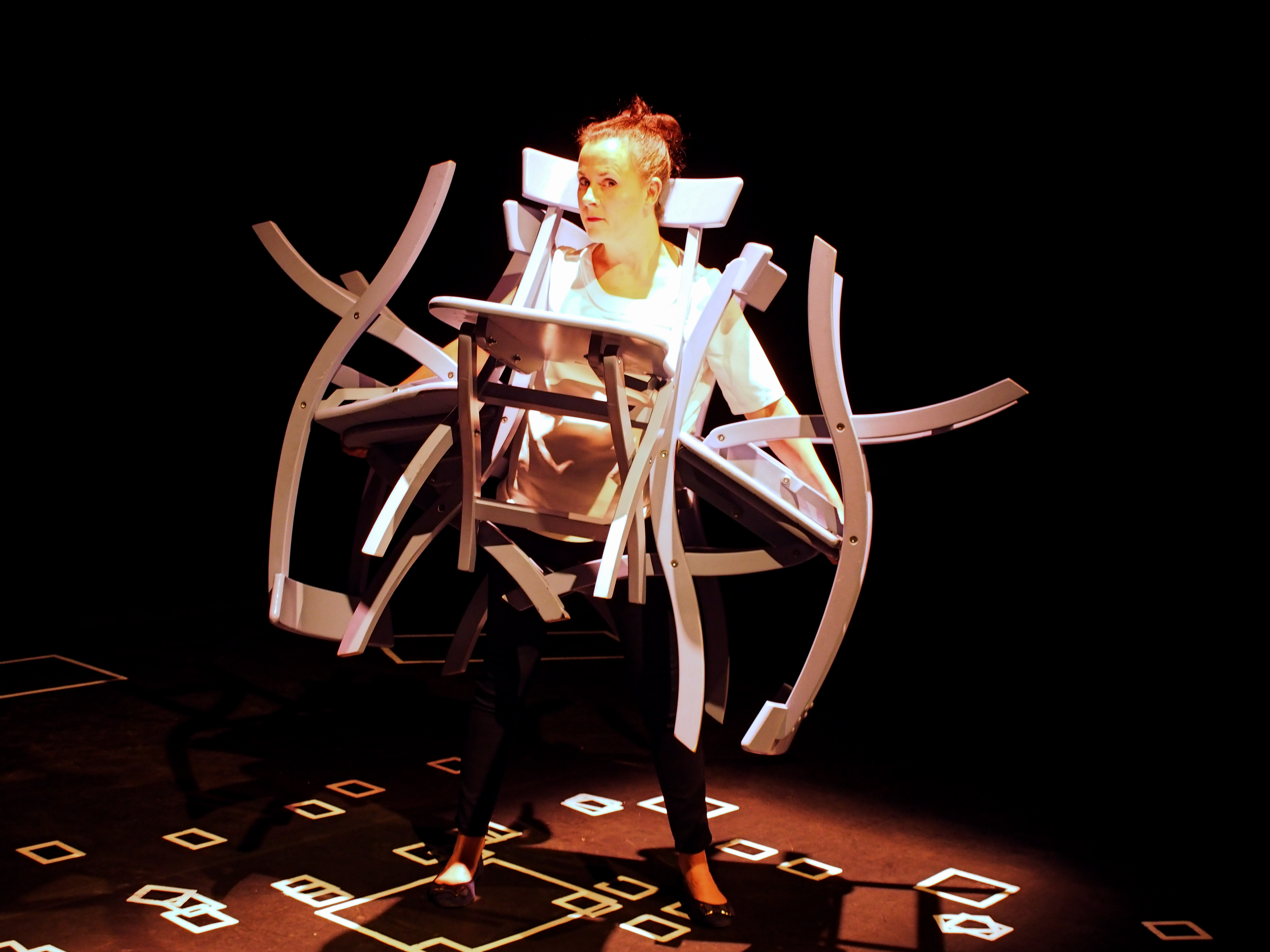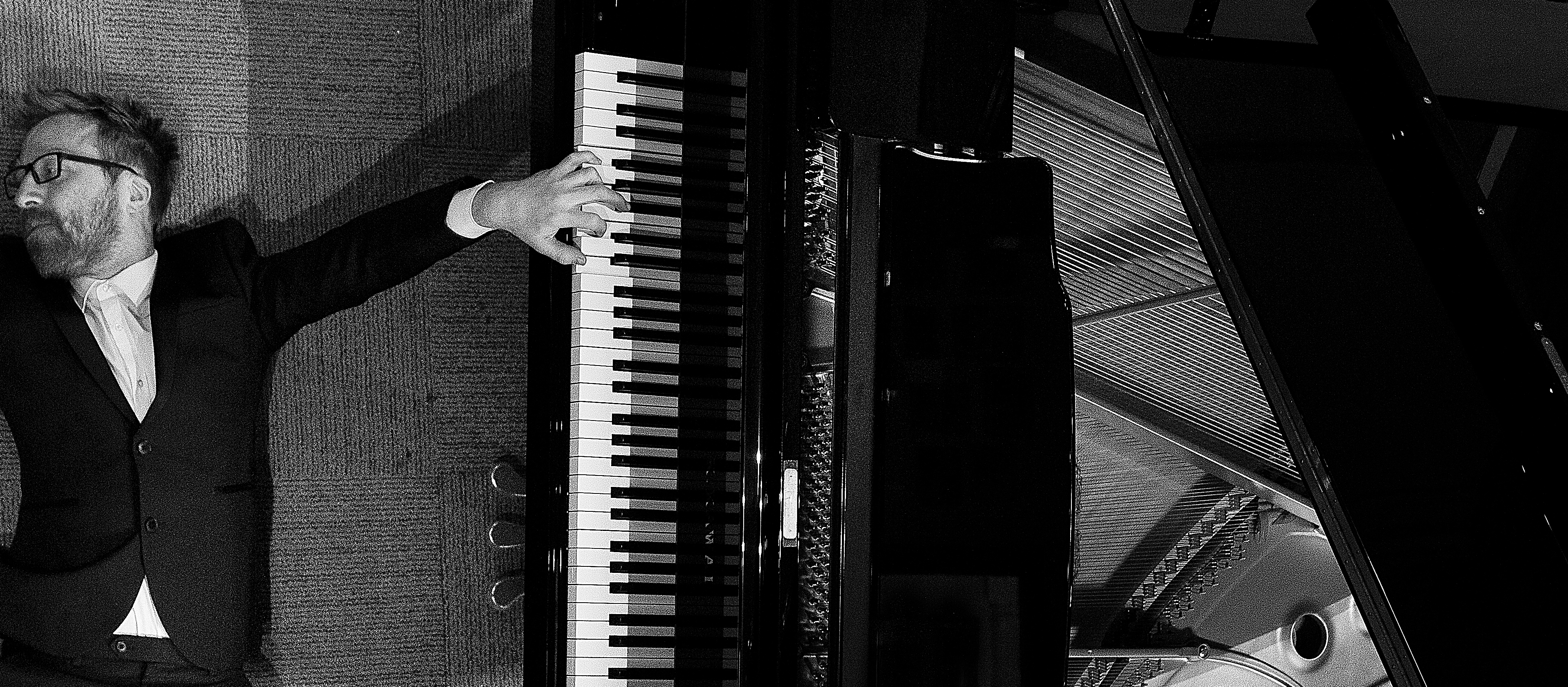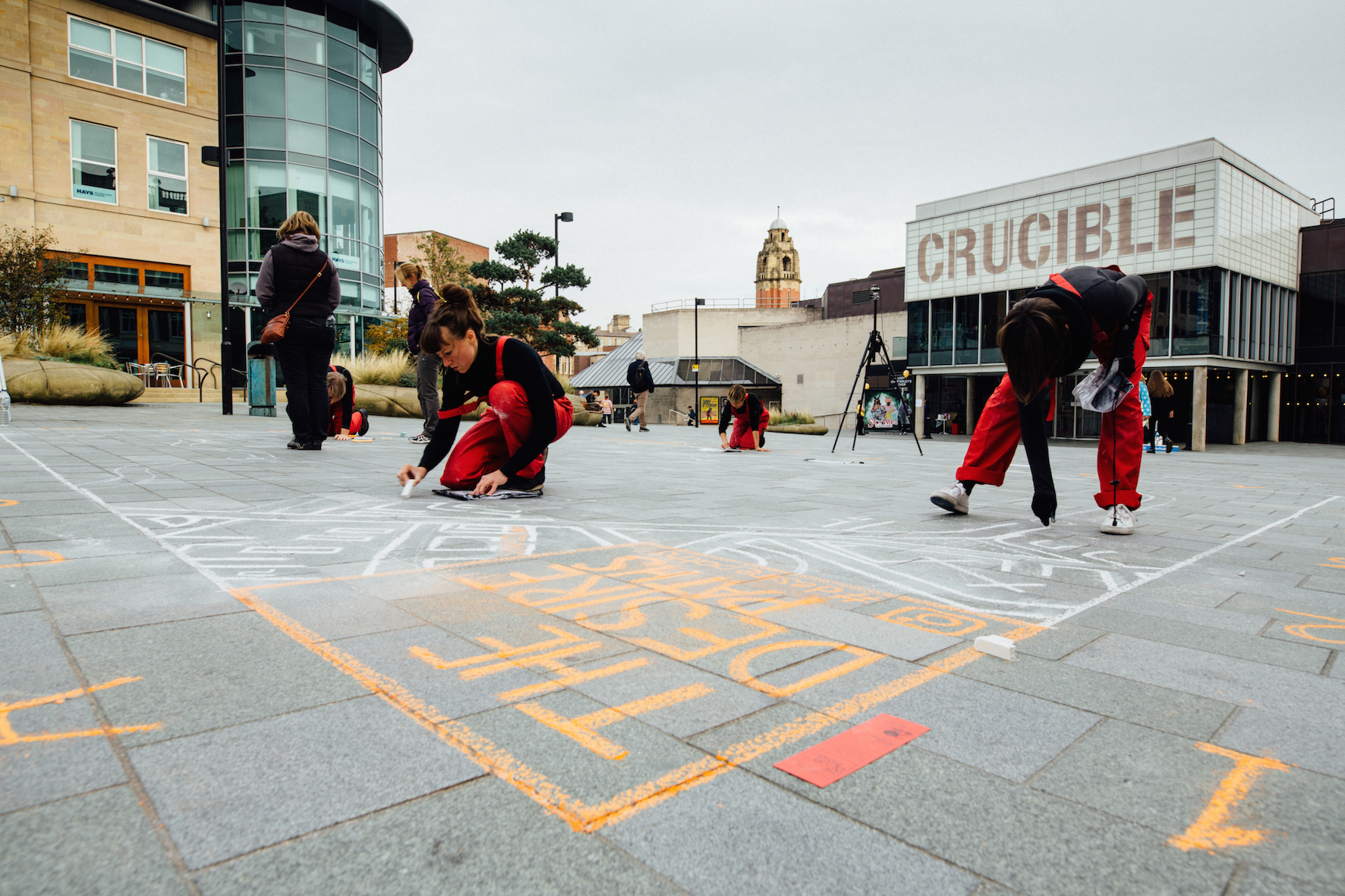**UPDATE** 600 People continues to tour in autumn 2019: Bedford, Harrogate, Huddersfield and Colchester. Tour dates here.
**
I’ve just finished listening to Episode 5 of 13 Minutes to the Moon: The Fourth Astronaut. It’s all about the development of the Apollo Spacecraft’s Command and Service Module’s on-board computer – and the software that it ran in order to be able to land on the moon.
In our show 600 People, I recall talking to astrophycisist Dr Simon Goodwin about whether or not he thinks human beings “will ever get to Mars?” In his response - back in 2006 - Simon talked about the cost of space exploration, and how it always pays for itself through the boost that it gives the economy, and also about the benefit of “technological trickle down”. I use this as an opportunity to make a gag about spaceships and frying pans, but The Fourth Astronaut really demonstrates Simon’s point – explaining that the Apollo 11 mission saw in the dawn of digital/domestic computing, with the need for much lighter weight integrated circuits.
One of the things I’m most enjoying about 13 Minutes to the Moon is the way it frames the importance of the Apollo missions as being more than just Apollo 11, achieved by more than just the men who got to walk on the moon. A whole bunch of people, many of them in their early 20s, “these kids”, taking on this huge ambition and responsibility. At one point someone says (something like), “We didn’t know we couldn’t do it, so we just went ahead and did it.”
There are loads of new interviews with these team members, and in The Fourth Astronaut it is particularly great to hear Elaine Denniston and Margaret Hamilton talking about their roles. At one point Hamilton is talking about the difference between knowing a code language, and actually being able to write code that works. Just because you can write English, she observes, doesn’t mean they’d give you a job writing novels.
I’m guessing that 13 Minutes to the Moon is timed to conclude in the week of the 50th Anniversary of the first moon landings themselves, and of course there’s a lot of of other anniversary-related stuff out there at the moment – indeed, we’re performing 600 People at A Future Fantastic Festival and Latitude Festival as tie-in events.
If you’re interested in this area, my two top recommendations are Andrew Smith’s Moondust and Jed Mercurio’s Ascent. Smith’s Moondust is a telling of his own quest to meet all of the surviving humans who had walked on the moon. Formally, of course, this reportage/documentary approach, interweaving the story of the research task with the story he uncovered, is right up my street. But added to that it is surprising, insightful, entertaining and moving. Mercurio’s Ascent is the other side of the coin, a fictional exploration of the idea of the ‘phantom cosmonaut’. Written with relentless, elegantly spare prose, it manages to evoke the power of the human desire to get up, get away, get out there. I found it incredibly moving. Both highly recommended.

Our friend and board member Adrian Friedli has been keeping his eye out for this stuff for us, too. He’s leant me the current issue of Frieze which has nice space-related articles by artist Katie Paterson and novelist Lucy Ives, along with Gil Scott-Heron’s (brilliant) debut album, Small Talk at 125th & Lenox, that includes the poem Whitey On The Moon; recorded in 1970, Heron eloquently questions just who is benefiting from investment in space exploration.
What I got most excited about, though, was Adrian’s copy of the December 1969 National Geographic, which is a Moon Landings special. It includes loads of beautiful photographs, articles which of course are ‘look what we just did’, rather than retrospective: the events described don’t yet have the wider cultural significance they will go on to achieve. But to me, looking at it now, and perhaps this is partly down to the 1960s colour saturation of the photographs, partly because many of the images are so familiar, and maybe because it includes a flexidisc (a flexidisc!) of Sounds Of The Space Age: From Sputnik To Lunar Landing – it still feels nostalgic. As with 13 Minutes to the Moon, it’s the human aspect that I’m drawn to. The fact that these remarkable things are being done by ordinary people. (Of course, as you might have heard us say before, everything is done by ordinary people).
One article, called Man Walks On Another World, includes a transcript of the recording that is the basis for 13 Minutes to the Moon, but continues it to follow Armstrong and Aldrin on to the moon’s surface. I love the moment when, after he steps down, the second human being on the lunar surface, Aldrin turns to close the Command & Service Module door:
ALDRIN: Now I want to back up and partially close the hatch. Making sure not to lock it.
Is he making a gag here, or just thinking aloud? It’s hard to tell from a transcript. Either way, his companion replies:
ARMSTRONG: A particularly good thought.
As someone who regularly pops back to check that the front door is locked, I love the practicality of this moment.
When I told ex-spacecraft engineer Katie Sparks that I was writing this blogpost, she sent me a link to this video, saying, “I think you’ll enjoy the humanity”:
One of the things I love about touring 600 People is the conversations it inspires afterwards. I met Katie after she came to see the show in York a couple of years ago. If you’ve seen 600 People, you’ll know that whilst I might be fascinated by the Apollo Missions, the space programme that captured my heart is Voyager. The Voyager programme forms forms the narrative ‘brackets’ around 600 People, and was also the inspiration for our earlier show 9 Billion Miles From Home (the making of which is detailed in this lecture/blogpost, Testing The Hypothesis).
Katie introduced herself after the show, saying that she ‘used to work in the space industry’. As we talked, it became apparent that she was actually part of the team who built the European Space Agency’s Rosetta Spacecraft(!). Again, if you’ve seen the show, you’ll know that the Rosetta’s Philae Lander touching down on Comet 67/P Churyumov–Gerasimenko in 2014 is a turning point in the narrative. What was really gratifying for me was that Katie said that one of the things she liked about the show was that it captured the enthusiasm and passion of people who work in space science.

Last year I was lucky enough to be invited to talk at a ‘TaPRA Performance & Science Working Group Interim Event’ at Jodrell Bank. It was a thrill just to be there and see the scale of the Lovell telescope for a start. It was a day of fascinating conversation about science-related performance, with a focus, inevitably, on space exploration. There were people there who knew much more about the territory than me. The specific theme of the day was Seeing the Unseen – and the discussion was about how (performance in collaboration with) science can enable us to see things at a scale, or distance, or time, that we can’t “see” everyday. But we also talked about what it allows us to see on an emotional level.
My provocation was called Performing science: how does it make you feel?
In Third Angel we’ve always said that we make work about the things that fascinate us or bother us. The stuff your brain returns to when its meant to be thinking about something else. That might be personal relationships and domestic details, or it might be circadian rhythms, timezones, cartography or the fact that the Voyager spacecraft are, you know, actually out there, right now, almost incomprehensible distances from the human beings who built them. We explore these ideas through conversations and collaborations with specialists and experts in their fields: psychologists, cartographers, astrophysicists. Our aim with these projects is to make something that responds to the emotional, human impact that their research has.
One of the things I mentioned was something Prof. Simon Goodwin (he’s Dr Simon Goodwin in 600 People because he wasn’t a Professor when I first met him) said to me that has stayed with me. I think maybe it was in an after-show discussion after an early performance of the first version of the show. He said that it had struck him that scientists, on the whole, go into their field of study because they are passionate about it. Fascinated, curious, inquisitive… and they care about it too. But the more they train and study their field, the more they are encouraged (or at least can feel like they are) to be dispassionate about their findings – to appear to be more objective. I have to say, in our conversations Simon always seems passionate and enthusiastic about whatever he’s explaining to me.
I had also written to Katie to ask if she could expand on what she had said to me after the show. She wrote back:
Until July last year, I worked as an engineer - my only job in this field was in the space industry.
Which sounds amazingly glamorous, until you realise that the technicians are the folk in the awesome clean room suits who are actually seeing the things, and that being an engineer means attending meetings and writing reports - so much like 99% of any other “professional” job.
It may be surprising to find out that designing spacecraft is hard. And I mean, really hard. Not just because of the tech and what we’re trying to do, but actually, because of timescales and budgets and getting all the right people together from all of everywhere. Somewhere in all of that, it can be easy to lose sight of the bit where you’re working on something that’s going to space. I need to say that again, because that’s the bit that’s magic: you’re working on something that’s going to space.
If you’re lucky, you’ll work on telecommunications and satellite navigation systems, which means your sentence ends up as:
“I’m working on something that’s going to space and it will change the lives of millions of people across the whole world.”
(But even this is actually not my favourite version).
If you’re lucky, you’ll work on something that’s going to do things that can’t be done on Earth, chasing dreams of where it all began, what else is out there and how does it all work? In that case, your sentence ends up as:
“I’m working on something that’s going to space and it’s going to help us understand a little bit more and see all of everything else in some other new way.”
As a sciency type, this is my favourite.
**
I’m looking forward to taking 600 People out again in July. It’s a treat to get to be part of this conversation. In Sheffield A Future Fantastic Festival at Theatre Deli is all about imagining where we (homo sapiens) go next. At Latitude I’m looking forward to catching up with Unlimited Theatre’s Space Shed, Footprint’s Signals and checking out this whole host of space themed activity. If you’re coming along to any of these gigs, please do say hello afterwards.













